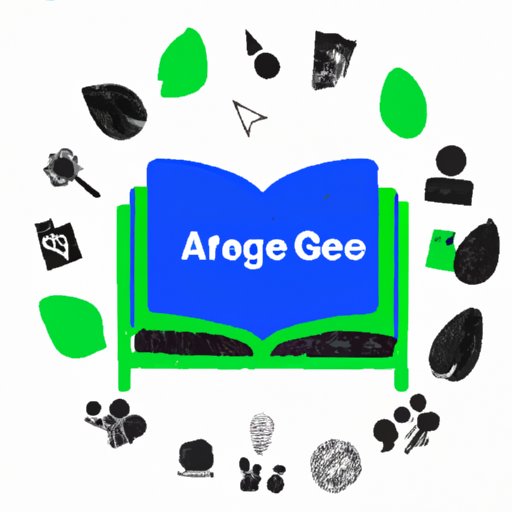
Introduction
Books can be expensive, leaving many readers on a budget struggling to keep up with their reading habits. Fortunately, there are plenty of ways to get free books, from online sources to public libraries, book swapping, little free libraries, free book programs, and online book clubs. This article aims to help readers solve the problem of finding free books by exploring these seven topics in detail.
Online sources for free e-books
One of the most popular ways to access free books is through online sources such as Project Gutenberg, Google Books, and Amazon’s Kindle Unlimited. Project Gutenberg offers a vast collection of public domain e-books that can be downloaded for free, while Google Books offers millions of free e-books that can be accessed through its search engine. Amazon’s Kindle Unlimited allows readers to sign up for a free trial period to access a wide selection of e-books, including many bestsellers and popular titles.
Public libraries
Public libraries offer a wealth of free reading material in the form of physical books, audiobooks, and e-books. Readers can find and visit their local library using online search tools and can access free books either by borrowing physical copies or downloading e-books onto their devices using the library’s website. Public libraries also offer a range of other services, including reading programs, book clubs, and access to research databases.
Book swapping
Book swapping platforms such as BookMooch and PaperBackSwap allow readers to exchange books they no longer want for books they do want. These platforms work by allowing readers to list the books they have available to swap and then match them with others who are looking for those books. This way, readers can get new reading material without spending any money, and also help others to do the same.
Little Free Libraries
Little Free Libraries are small structures that can be found in public spaces, such as parks or street corners, and are filled with books that are free to take and read. Readers can find Little Free Libraries in their area using the organization’s website or mobile app and can contribute to them by donating books they no longer want. Little Free Libraries are a great way to discover new books and also to share books with others in the local community.
Free Book Programs
Free Book Programs like Bookshare and First Book are organizations that provide free books to those who need them. Bookshare provides free e-books to those with disabilities, while First Book provides free and low-cost books to children in need. Readers can benefit from these programs by getting involved as volunteers, donors, or beneficiaries.
Online Book Clubs
Online book clubs are virtual communities that bring readers together to discuss books and share their thoughts with others. These clubs can be found through social media platforms or dedicated websites and can range from general interest groups to genre-specific clubs. Readers can join and participate in online book clubs for free, allowing them to discover new books and also to connect with like-minded readers.
Social Media
Social media platforms such as Facebook, Twitter, and Instagram can also be used to find and access free e-books. There are many groups on these platforms that are dedicated to sharing free e-books, and readers can join them to access a wide selection of reading material. Some of the best free e-book groups on social media include Free Ebooks Daily on Facebook and Freebook Sifter on Twitter.
Conclusion
By exploring these seven topics, readers can find a variety of ways to access free reading material. From online sources to little free libraries and social media groups, there are plenty of options available to satisfy even the most voracious readers. By taking advantage of these resources, readers can keep up with their reading habits without breaking the bank.





